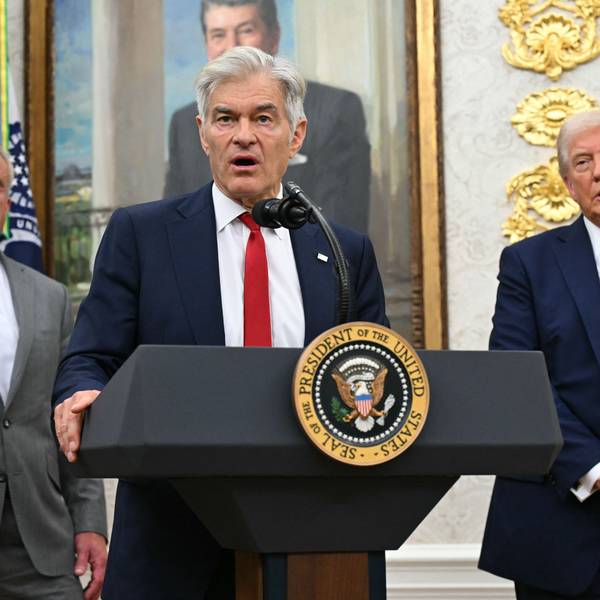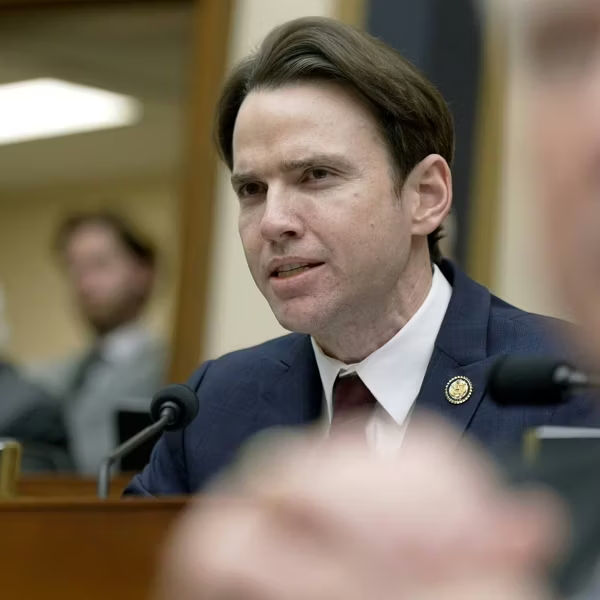Obamacare Repeal = $7 Million Tax Cut for Nation's Richest 400 People
New report from Center on Budget and Policy Priorities shows getting rid of healthcare law would deliver windfall tax cut for top earners
Repealing Obamacare, which Republicans on Friday appear closer to doing, would deliver a sizeable tax cut for the rich, a new report shows.
Released Thursday by the Center on Budget and Policy Priorities (CBPP), the publication shows that the repeal would give to each of the top 400 highest-income taxpayers--who averaged incomes of roughly $318 million in 2014--a tax cut of about $7 million a year.
That's because getting rid of the healthcare law would mean getting rid of its two Medicare taxes, which are paid for by individuals with incomes above $200,000 and couples with incomes above $250,000. One is a 3.8 percent Medicare tax that hits their unearned income (like capital gains) above those thresholds, while the other is additional 0.9 percent tax on earned income above those thresholds.
As such, a repeal "delivers tax cuts that are extremely tilted to the top," the report states.
At the same time, low-and middle-income households would see a rise in taxes since they would lose premium tax credits to buy health coverage through the marketplaces, CBPP notes. For the rich, the benefits of a repeal wouldn't end with the elimination of the Medicare taxes, the report continues:
Republicans also plan to move a broader tax package this year, and the tax proposals from both the House GOP (in its "Better Way" plan issued last June) and President-elect Trump include large, additional net tax cuts heavily focused on the most well-off. These include such proposals as sharply reducing the top business and individual income tax rates and repealing the estate tax.
Apart from taking healthcare coverage away from some 30 million people, another study released last week showed that the repeal could cost states trillions in lost revenue and output.
Meanwhile, Sen. Bernie Sanders (I-Vt.) and Democratic leaders in Congress have called for Jan. 15 to be a day of action nationwide to "[m]ake sure [President-elect] Donald Trump and his Republican colleagues know that we won't let them take our healthcare away, end Medicare as we know it, cut Medicaid, and defund Planned Parenthood."
An Urgent Message From Our Co-Founder
Dear Common Dreams reader, The U.S. is on a fast track to authoritarianism like nothing I've ever seen. Meanwhile, corporate news outlets are utterly capitulating to Trump, twisting their coverage to avoid drawing his ire while lining up to stuff cash in his pockets. That's why I believe that Common Dreams is doing the best and most consequential reporting that we've ever done. Our small but mighty team is a progressive reporting powerhouse, covering the news every day that the corporate media never will. Our mission has always been simple: To inform. To inspire. And to ignite change for the common good. Now here's the key piece that I want all our readers to understand: None of this would be possible without your financial support. That's not just some fundraising cliche. It's the absolute and literal truth. We don't accept corporate advertising and never will. We don't have a paywall because we don't think people should be blocked from critical news based on their ability to pay. Everything we do is funded by the donations of readers like you. Will you donate now to help power the nonprofit, independent reporting of Common Dreams? Thank you for being a vital member of our community. Together, we can keep independent journalism alive when it’s needed most. - Craig Brown, Co-founder |
Repealing Obamacare, which Republicans on Friday appear closer to doing, would deliver a sizeable tax cut for the rich, a new report shows.
Released Thursday by the Center on Budget and Policy Priorities (CBPP), the publication shows that the repeal would give to each of the top 400 highest-income taxpayers--who averaged incomes of roughly $318 million in 2014--a tax cut of about $7 million a year.
That's because getting rid of the healthcare law would mean getting rid of its two Medicare taxes, which are paid for by individuals with incomes above $200,000 and couples with incomes above $250,000. One is a 3.8 percent Medicare tax that hits their unearned income (like capital gains) above those thresholds, while the other is additional 0.9 percent tax on earned income above those thresholds.
As such, a repeal "delivers tax cuts that are extremely tilted to the top," the report states.
At the same time, low-and middle-income households would see a rise in taxes since they would lose premium tax credits to buy health coverage through the marketplaces, CBPP notes. For the rich, the benefits of a repeal wouldn't end with the elimination of the Medicare taxes, the report continues:
Republicans also plan to move a broader tax package this year, and the tax proposals from both the House GOP (in its "Better Way" plan issued last June) and President-elect Trump include large, additional net tax cuts heavily focused on the most well-off. These include such proposals as sharply reducing the top business and individual income tax rates and repealing the estate tax.
Apart from taking healthcare coverage away from some 30 million people, another study released last week showed that the repeal could cost states trillions in lost revenue and output.
Meanwhile, Sen. Bernie Sanders (I-Vt.) and Democratic leaders in Congress have called for Jan. 15 to be a day of action nationwide to "[m]ake sure [President-elect] Donald Trump and his Republican colleagues know that we won't let them take our healthcare away, end Medicare as we know it, cut Medicaid, and defund Planned Parenthood."
Repealing Obamacare, which Republicans on Friday appear closer to doing, would deliver a sizeable tax cut for the rich, a new report shows.
Released Thursday by the Center on Budget and Policy Priorities (CBPP), the publication shows that the repeal would give to each of the top 400 highest-income taxpayers--who averaged incomes of roughly $318 million in 2014--a tax cut of about $7 million a year.
That's because getting rid of the healthcare law would mean getting rid of its two Medicare taxes, which are paid for by individuals with incomes above $200,000 and couples with incomes above $250,000. One is a 3.8 percent Medicare tax that hits their unearned income (like capital gains) above those thresholds, while the other is additional 0.9 percent tax on earned income above those thresholds.
As such, a repeal "delivers tax cuts that are extremely tilted to the top," the report states.
At the same time, low-and middle-income households would see a rise in taxes since they would lose premium tax credits to buy health coverage through the marketplaces, CBPP notes. For the rich, the benefits of a repeal wouldn't end with the elimination of the Medicare taxes, the report continues:
Republicans also plan to move a broader tax package this year, and the tax proposals from both the House GOP (in its "Better Way" plan issued last June) and President-elect Trump include large, additional net tax cuts heavily focused on the most well-off. These include such proposals as sharply reducing the top business and individual income tax rates and repealing the estate tax.
Apart from taking healthcare coverage away from some 30 million people, another study released last week showed that the repeal could cost states trillions in lost revenue and output.
Meanwhile, Sen. Bernie Sanders (I-Vt.) and Democratic leaders in Congress have called for Jan. 15 to be a day of action nationwide to "[m]ake sure [President-elect] Donald Trump and his Republican colleagues know that we won't let them take our healthcare away, end Medicare as we know it, cut Medicaid, and defund Planned Parenthood."

